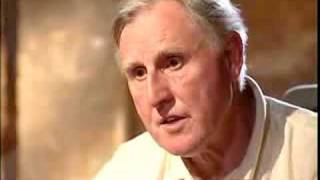 As webmaster for New York City Atheists (see here), I recently found myself on a mailing list for a man named Michael Roll, pictured right. While he considers himself an atheist, Mr. Roll is also a self-professed spiritualist who has undertaken a personal mission to sell his particular fantasy as a non-religious, science-based idea. Since the 1960’s his “campaign for philosophical freedom” (see here) has tried to promote his spiritualist delusions.
As webmaster for New York City Atheists (see here), I recently found myself on a mailing list for a man named Michael Roll, pictured right. While he considers himself an atheist, Mr. Roll is also a self-professed spiritualist who has undertaken a personal mission to sell his particular fantasy as a non-religious, science-based idea. Since the 1960’s his “campaign for philosophical freedom” (see here) has tried to promote his spiritualist delusions.
Following are just a few of the ideas that he puts forth with great intellectual soberness and gravitas:
- There is no god, but there is an afterlife that is part of the natural world. This spirit world exists on a “different frequency” and accounts for the unaccounted 95% of the energy in our universe.
- While the religious beliefs of others are nonsense, his essentially identical beliefs are based on “experiments and mathematical models.”
- His evidence is largely based on the “research” conducted by Sir William Crooks between 1871 and 1874. Crooks observed the manifestations produced by several “materialism mediums” which he claimed proved the existence of a vast afterlife (see here).
- The media is in cahoots with the Vatican in a conspiracy to discredit legitimate science on the paranormal including work linking subatomic physics with the afterlife (see here).
- According to Roll “famous television scientist Professor Brian Cox […] is let loose on the public because his false model of the universe is no danger to the Vatican and their powerful materialistic agents.“
- Roll also states “2018 could just be the year that a few billion people will find out that the great philosopher Jesus started from the correct scientific base that we all have a soul that separates from the dead physical body. But most important of all, that Einstein started from the incorrect scientific base that the mind dies with the brain.“
I am not going to waste any of your time refuting all of Roll’s clearly delusional fantasies, any more than I would waste your time refuting the Narnia-really-exists theory. Here is a video in which you can hear his “logic” directly from him (video here). It particularly saddens me that Roll appears to be a student of Carl Sagan and quotes him extensively, yet manages to do so in a way that is a blasphemy to everything Dr. Sagan stood for (see here).
What interests me more than debunking this one clearly delusional individual is the more general observation that atheists are not immune to magical thinking. While atheists may not believe in god, they may certainly believe in lots of other equally nonsensical ideas. Just calling oneself an atheist does not immunize one from delusions. Michael Roll’s secular form of rationalizing his magical thinking with “logic” is no different than the “logic” put forth by Ken Ham to rationalize his biblical fantasy (see here).
Atheist delusions can be unique to an individual, but are more often propagated by non-religious movements and fads. Spiritualism and New Age thinking are examples of non-religious structures of fantastical delusions about the world.
Even smart, logical, sophisticated thinkers are not insulated from spiritual delusion. Sir Arthur Conan Doyle, the brilliant creator of the paragon of rational thought, Sherlock Holmes, was another passionate proponent of spiritualism. He clung to his belief, even after Houdini proved to him that his magic tricks were merely tricks. Even after that irrefutable evidence, Doyle refused to be swayed from his insistence that they proved spiritualism was real (see here).
That these kind of spiritual belief systems can so compromise the thinking of one such as Conan Doyle demonstrates that they are both highly seductive and tenacious. Many of my atheist friends do not share my concern about these non-religious movements because they do not have the institutional power of an organized church behind them. Fair enough. However, they still contribute significantly to a culture in which magical thinking is encouraged and rational thought diminished. They legitimize and normalize public debate on important matters in which “alternative facts” are even entertained.
I argue that while misguided atheists like Michael Roll claim not to believe in god, their belief in essentially the same kind of pseudoscientific thinking supports faith-based thinking in all its forms. To attempt to use phony science fiction to rationalize a delusion does not make it less harmful than a purely religious belief. Indeed, the false invocation of the facade of science may in fact make the delusion far more harmful and damaging.
In my book “The Science of Belief,” (see here), I tried hard to not focus too much on religious thinking specifically, but on all non-fact based thinking in general. My thesis was that we cannot successfully attack religion or other secular forms of magical thinking directly. Rather we must teach real, authentic scientific ways of thinking and approaching the unknown. If we succeed at that, religion and spiritualism will crumble away to dust on their own.